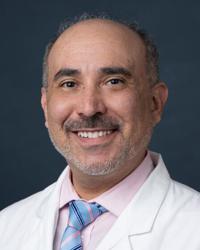Research Lab Results
-
Pulmonary Infection and Inflammation Research Lab
The Jia lab performs basic and translational research into the mechanisms of and therapeutic strategy for viral and bacterial infection-induced inflammatory lung diseases, one of the leading causes of death in pulmonary diseases, especially for the ongoing pandemic of the SARS-CoV-2 mediated COVID-19. Our work has identified novel roles of Angiotensin-converting enzyme 2 (ACE2) in the inflammatory response to viral and bacterial lung infection and its complex contributions into the pathogenesis and disease progression and outcome of COVID-19. In seeking to translate these findings to clinical studies, we have been working on a collaboration with other investigators, developing novel diagnostic, preventive, and therapeutic tools in combating the devastating COVID-19, even in the era of effective vaccine prevention. These studies are funded by NIAID.
-
Jonathan Walsh Lab
The Jonathan Walsh Lab is currently researching longitudinal trends of diagnostic and procedural utilization in pediatric patients with head and neck complaints.
-
Robert Gilman Lab
Research in the Robert Gilman Lab focuses on disease control. Our work led to the development of microscopic-observation drug-susceptibility (MODS), a rapid tuberculosis diagnostic technique. We continue to conduct infectious disease research based at Peru’s Universidad Peruana Cayetano Heredia.
-
Peter van Zijl Laboratory
The Peter van Zijl Laboratory focuses on developing new methodologies for using MRI and magnetic resonance spectroscopy (MRS) to study brain function and physiology. In addition, we are working to understand the basic mechanisms of the MRI signal changes measured during functional MRI (fMRI) tests of the brain. We are also mapping the wiring of the brain (axonal connections between the brains functional regions) and designing new technologies for MRI to follow where cells are migrating and when genes are expressed. A more recent interest is the development of bioorganic biodegradable MRI contrast agents. Our ultimate goal is to transform these technologies into fast methods that are compatible with the time available for multi-modal clinical diagnosis using MRI. -
Peter Abadir Lab
Research in the Peter Abadir Lab focuses on the renin-angiotensin system (RAS), a signaling pathway that regulates blood pressure and has been linked independently to both aging and inflammation. We’re particularly interested in changes in RAS that occur with aging. We also study signal transduction and the role of the crosstalk between angiotensin II receptor in aging and are interested in understanding the function of angiotensin II in the process of vascular aging.
-
Pediatric Cardiology Core Imaging Laboratory
The lab’s assets include three MRI systems available for pediatric studies, cardiac imaging processing, cardiovascular imaging and therapeutic ultrasound. A robust echocardiogram program conducts 10,000 transthoracic echocardiograms and 1,300 fetal echocardiograms per year, and maintains a database with 10 years of data.
-
Aliaksei Pustavoitau Lab
The Aliaksei Pustavoitau Lab conducts research on models and mechanisms of impaired consciousness in patients who have suffered acute brain injury. Examples of our work include a study on the mechanisms of neurologic failure in critical illness and another on the use of intensivist-driven ultrasound at the PICU bedside. We also have a longstanding interest in patient safety and quality of care in the ICU setting.
-
Jon Russell Lab
The Jon Russell lab focuses on thyroid and parathyroid pathology as well as improving patient safety and education using healthcare technology. Additional focuses include utilizing new technology to advance on the techniques of minimally invasive neck surgery. Current and previous efforts include the development of mobile and web-based applications to educate physicians and patients, utilizing ultrasound for vocal cord imaging, understanding the nuances of advanced thyroid cancer, and exploring the role of scarless thyroid surgery in a North American population.
-
Janet Record Lab
Research in the Janet Record Lab focuses on medical education and patient-centered care. We’re currently developing a curriculum for internal medicine residents in the inpatient general medicine service setting. The curriculum teaches residents to use hand-carried ultrasound for imaging the inferior vena cava to assess volume status.
-
Jinyuan Zhou Lab
Dr. Zhou's research focuses on developing new in vivo MRI and MRS methodologies to study brain function and disease. His most recent work includes absolute quantification of cerebral blood flow, quantification of functional MRI, high-resolution diffusion tensor imaging (DTI), magnetization transfer mechanism, development of chemical exchange saturation transfer (CEST) technology, brain pH MR imaging, and tissue protein MR imaging. Notably, Dr. Zhou and his colleagues invented the amide proton transfer (APT) approach for brain pH imaging and tumor protein imaging. His initial paper on brain pH imaging was published in Nature Medicine in 2003 and his most recent paper on tumor treatment effects was published in Nature Medicine in 2011. A major part of his current research is the pre-clinical and clinical imaging of brain tumors, strokes, and other neurologic disorders using the APT and other novel MRI techniques. The overall goal is to achieve the MRI contrast at the protein and peptide level without injection of exogenous agents and improve the diagnostic capability of MRI and the patient outcomes.
